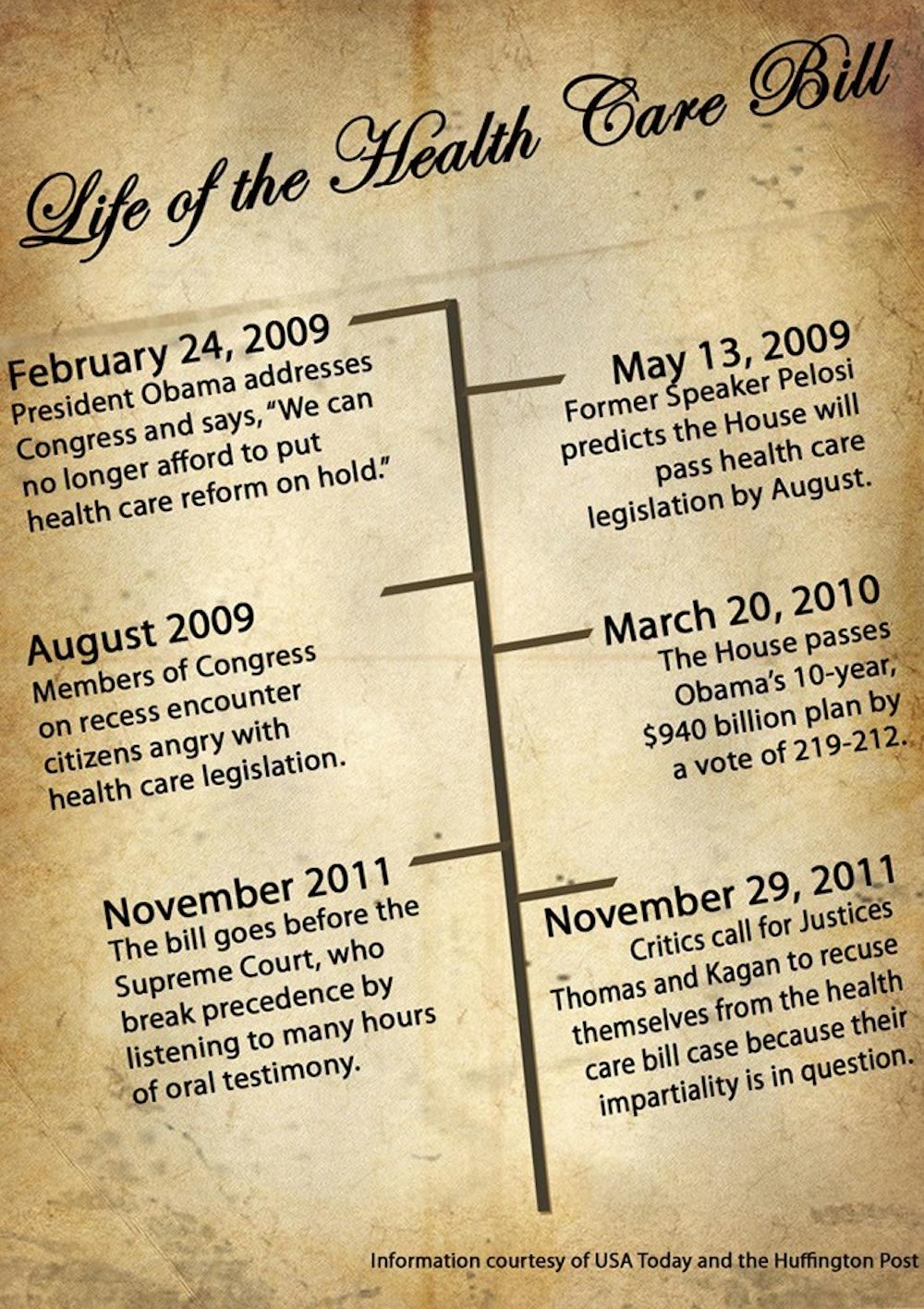The New York Times called it President Barack Obama's "signature legislative achievement" and then-Speaker of the House Nancy Pelosi commanded that it had to be passed. But the health care reform bill wasn't really passed in the normal sense of the word. Rather, Congress, with all of its exalted collective wisdom, simply deemed the bill passed by a vote. After all, our nation was in the midst of a "health care crisis," so immediate action was necessary.
After two years on the federal law books, President Obama's health care reform has made it to the Supreme Court. Many parts of the legislation, especially a provision requiring citizens to either purchase health insurance or face fines have come under fire and rightfully so.
The future of Obama's health care reform is bleak at best. We're talking about legislation that was drafted behind closed doors almost exclusively by Democratic Party leaders. During the debate, Republican ideas were tossed at almost every turn. This trend is likely to continue when the inevitable time comes to handle the problems caused by the added government regulation and litigation.
Instead of seeking a government overhaul of an industry composing a large part of our GDP, many Republicans and conservatives in Congress proposed private sector solutions to lower the cost of health care in the United States.
For example, removing barriers that disallow citizens from purchasing insurance across state lines would sharpen competition among health providers. Such a reform would bring down premiums while also improving economic conditions.
Obama and his Democrats wanted nothing to do with this. By also rejecting the inclusion of limits on malpractice suits, the party made it clear that the only health care reform this country would see on its watch was one that would grow government.
Since the bill's passing, which didn't earn a single Republican vote, the price of premiums has increased and we can look forward to government spending hitting even higher levels in a time when austerity measures are more important than ever.
The nation would benefit from the law being repealed, either on the bench of the highest court in the land or through legislative means. The legality of the individual mandate is being challenged by 26 states, a measure the administration conveniently obscured from the public during the debate.
But the individual mandate should call in to question: what else can we looking forward to finding out if Obama's reforms stay on the books? Where should government end and the rest of society begin? What is it ultimately up to the individual to decide for him or herself?
If the law does not make it past the Supreme Court, the Obama re-election campaign will be challenged to find what it can show for itself. Aside from continuing the bailouts and foreign intervention measures introduced by the Bush administration, which should abhor anyone skeptical about a cozy relationship between business and government, all we're left with is "hope and change" all over again.


